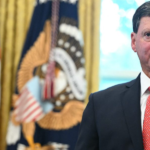Kohl’s has had a rocky year, so it was due for at least a little bit of good news.
On Wednesday, the discount-retail chain reported an earnings beat, shocking Wall Street analysts. The company reported adjusted earnings-per-share of $0.56, significantly beating the consensus estimate of just $0.30 per share. And markets rejoiced in the news: Kohl’s share prices are up nearly 20% on Wednesday.
“Although we are encouraged by our second quarter results and the improved sales trend we saw throughout the quarter, we also recognize that consumers continue to be pressured and are being choiceful with their purchases,” Bender said during Wednesday’s earnings call.
While lower-to-middle income customers remain the most challenged, higher-income customers have been more resilient, Bender said.
“Several of our key initiatives are focused on delivering greater value to these customers through investing in our proprietary brands and adding more coupon-eligible brands,” Bender said.
Toward the end of Q1, Kohl’s made more in-store brands eligible for coupons, which “generated an immediate positive response in our digital channel, where pricing transparency plays a significant role in customer decision making,” Bender said. “As the quarter progressed, we saw the performance improve in our stores as we increased investment in in store signage and marketing.”
That could be a telling sign customers are continuing to chase deals as they watch other stores raise prices due to inflation and tariffs. To be sure, many middle-income customers have also “traded-down” to even more value-focused brands, so Kohl’s will need to continue offering coupon-friendly brands and items to stay afloat. Baird cites potential risks for Kohl’s as “choppy” consumer spending trends, a highly competitive promotional space, weather, and other economic factors.
Jewelry and women’s clothing had been a sore spot for Kohl’s after Buchanan’s predecessor Tom Kingsbury had opted for Kohl’s to carry less inventory (like fine jewelry and women’s petite sizing), which ultimately hurt business. Kingsbury even admitted his choice to do so was “shortsighted.”









